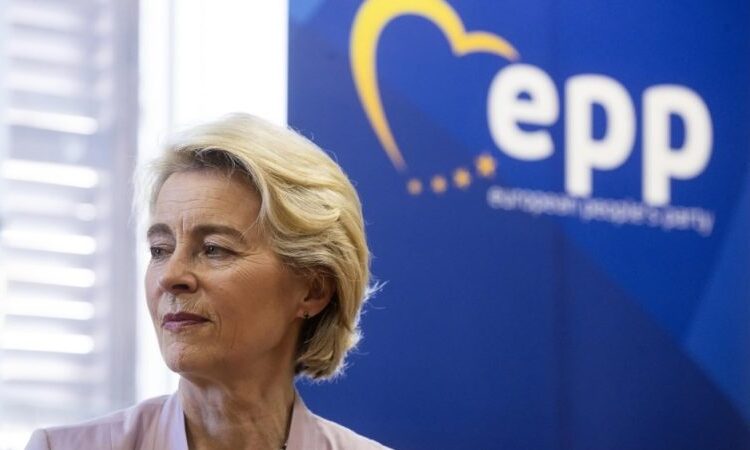
Politicians from the liberal FDP (Renew), part of Germany’s three-party ruling coalition, have criticised European Commission President Ursula von der Leyen for not ruling out a new debt-financed EU investment programme.
In an interview with the Financial Times published on Tuesday (21 May), von der Leyen said she was open to a new round of jointly-issued EU debt, although adding that this was a “pure sovereign decision” by EU countries.
In her native Germany, the interview sparked strong reactions as the FDP blamed her for breaking with the principles of her centre-right CDU (EPP) party, which has long been warning against a “debt union” with joint EU liability for sovereign debt.
“Ursula von der Leyen is breaking key promises from the CDU election programme with her statements and is making herself and the CDU untrustworthy,” Michael Link, deputy head of the FDP group in the German Bundestag, said in a statement.
“An economically successful Europe can reduce debt instead of piling up new mountains of debt for the next generation,” Link added.
Conversely, Von der Leyen’s comments on Tuesday drew praise from the opposite side of the political spectrum, with Green EU lawmaker Rasmus Andresen telling SPIEGEL that the Greens “welcome the fact that Ursula von der Leyen is opening up to joint European investments, and thus contradicting her own party”.
The EU’s €723.8 billion Recovery and Resilience Facility – the key funding programme at the heart the bloc’s post-pandemic support plan Next Generation EU – is due to come to an end in 2026.
So far, centre-right lawmakers have ruled out a new round of joint borrowing, which has been supported – among others – by centre-left politicians such as Economy Commissioner Paolo Gentiloni, as well as the International Monetary Fund’s Managing Director Kristalina Georgieva.
The liberal FDP is the main contender, alongside the conservative CDU and its Bavarian sister party CSU, for German pro-business voters.
However, while the FDP won 11.4% of votes in the 2021 federal election, it now hovers just around 4% in nation-wide polls for both the federal and the European elections. Meanwhile, CDU/CSU is leading the polls at around 30%.
[Edited by Anna Brunetti/Zoran Radosavljevic]







